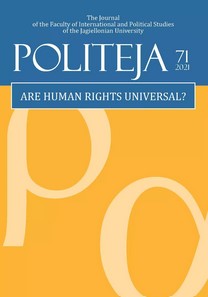(NON)RELIGIOUS FREEDOM: A CRITICAL PERSPECTIVE ON THE CONTEMPORARY UNDERSTANDING OF FREEDOM OF CONSCIENCE AND RELIGION
(NON)RELIGIOUS FREEDOM: A CRITICAL PERSPECTIVE ON THE CONTEMPORARY UNDERSTANDING OF FREEDOM OF CONSCIENCE AND RELIGION
Author(s): Rafał ProstakSubject(s): Christian Theology and Religion, Constitutional Law, Human Rights and Humanitarian Law, Politics and law, Politics and religion, Sociology of Religion, Court case
Published by: KSIĘGARNIA AKADEMICKA Sp. z o.o.
Keywords: liberty of conscience; tolerance; neutrality;
Summary/Abstract: Nowadays, liberty of conscience as an inalienable right is a standard of demoliberal constitutionalism. It is an obvious component of a well-organized society and state. However, at the very beginning of its presence in the political discourse, it was more a product of Christian theology (the free conscience perceived as a gift of God) than a legal category; more an endowment of divinity than an intrinsic human value. In the contemporary, secularized world, our understanding of freedom of religion includes not only free exercise of religion but also freedom from religion. An increasing number of non-believers changes our expectations of the state that is obliged to protect the freedom of conscience of all citizens regardless of their beliefs. The goal of the article is to consider the difficulties faced by people with a theistic worldview in the reality of a state founded on the principle of ideological neutrality.
Journal: Politeja - Pismo Wydziału Studiów Międzynarodowych i Politycznych Uniwersytetu Jagiellońskiego
- Issue Year: 18/2021
- Issue No: 71
- Page Range: 183-202
- Page Count: 20
- Language: English

